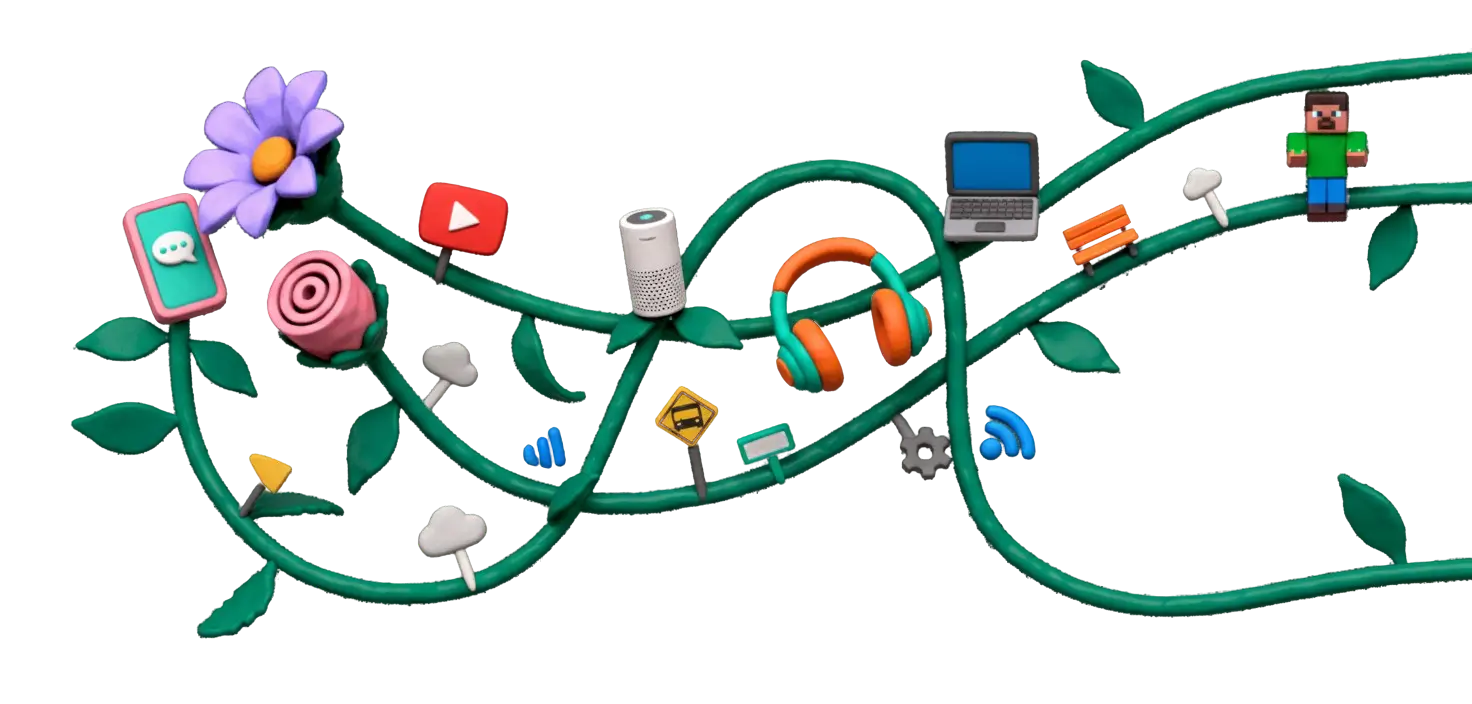
ChatGPT for kids & homework — the intentional parent's guide (2025)
Your child is using ChatGPT for homework. Is it cheating or a learning tool? The answer: it depends. AI isn't going away—but how kids use it will define whether it helps or harms their education. Here's what parents need to know.
What is ChatGPT and how are kids using it?
ChatGPT is an AI chatbot that can write essays, solve math problems, explain concepts, generate code, and more. It's free, accessible to anyone, and eerily good at sounding human. Kids are using it—whether you know it or not.
How kids are using ChatGPT:
- Writing entire essays (copy-paste = cheating)
- Getting homework answers (math, history, science)
- Brainstorming ideas (legitimate use)
- Explaining concepts they don't understand (helpful)
- Editing and improving their own writing (gray area)
- Coding help (common for CS students)
Why it's complicated:
- Teachers can't always detect AI-generated work
- Schools have inconsistent policies (some ban it, some allow it)
- The line between "help" and "cheating" is blurry
- AI is a tool that will be everywhere—kids need to learn to use it responsibly
- It can be genuinely helpful for learning—or a crutch that prevents it
The parent's dilemma:
You want your child to succeed, but you also want them to actually learn. Banning ChatGPT entirely feels unrealistic—but letting them use it unchecked feels like enabling shortcuts. The answer isn't all-or-nothing; it's teaching responsible use.
When ChatGPT helps vs. harms learning
✅ Helpful uses (builds learning):
Explaining concepts
"Can you explain photosynthesis in simple terms?" → Helps understanding, doesn't replace learning.
Brainstorming
"Give me 10 ideas for my science fair project" → Sparks creativity, kid still does the work.
Checking work
"Is my math solution correct?" → Like asking a tutor to review your work.
Learning new skills
"How do I write a persuasive essay?" → Teaches structure and technique.
❌ Harmful uses (prevents learning):
Writing essays for them
"Write me a 5-paragraph essay on the American Revolution" → Copy-paste = zero learning.
Doing all the math
"Solve these 20 problems for me" → They never learn the process.
Replacing critical thinking
Using AI for every question instead of trying to figure it out first.
Submitting AI work as their own
Academic dishonesty—violates school policies and teaches bad habits.
The "AI tutor" test:
Ask yourself: "If my child had a human tutor, would this be okay?"A tutor explains concepts, brainstorms ideas, and reviews work—but doesn't write essays for you. Use that standard for ChatGPT too.
Teaching responsible AI use
The conversation to have:
"ChatGPT is a tool—like a calculator. It can help, but it can't replace your brain."
"If you use AI to write something for you, you're not learning—you're outsourcing your education."
"It's okay to use AI for help—but you need to understand what it's telling you, not just copy it."
"Schools are watching for AI use. If you get caught cheating, there are real consequences."
"AI makes mistakes. It can give you wrong answers with total confidence. You need to fact-check."
Rules to set:
- No copy-pasting AI-generated text into assignments (ever)
- If you use ChatGPT for help, cite it (just like you'd cite a source)
- Try the work yourself first (AI is for when you're stuck, not a first resort)
- Explain what ChatGPT told you in your own words (proves you understand)
- Follow your school's policy (some teachers allow it, some don't—respect that)
How to check they're using it responsibly:
- Ask them to explain their work: "Tell me how you got this answer." If they can't, they didn't learn it.
- Spot-check assignments: If writing quality suddenly jumps, ask questions.
- Use ChatGPT together: Show them how to use it as a learning tool, not a shortcut.
- Check their ChatGPT history: Most accounts save conversations (with their permission, review periodically).
Final thought: AI literacy is the new digital literacy
Banning ChatGPT isn't realistic—AI is already everywhere and will only grow. The kids who learn to use AI responsiblywill have an advantage. The kids who use it as a crutch will struggle when AI isn't available (tests, jobs, real life).
What AI literacy looks like:
- Understanding when AI helps vs. harms learning
- Knowing AI makes mistakes and needs fact-checking
- Using AI as a tool, not a replacement for thinking
- Citing AI use transparently and ethically
- Recognizing when human judgment is needed
"The goal isn't to eliminate AI from homework—it's to teach kids to think critically about when and how to use it."
Action steps for this week:
- Ask your child: "Have you used ChatGPT for school? How?"
- Check your school's AI policy (many are still figuring it out)
- Set clear rules about AI use for homework
- Use ChatGPT together once—show them how to use it as a learning tool
- Teach the "explain it back to me" test: If they can't explain it, they didn't learn it
You're preparing them for a future where AI is everywhere. That's important work.